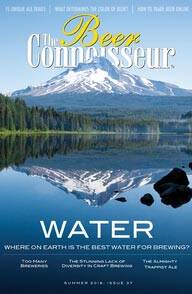Start 14-Day Trial Subscription
*No credit card required

Top 10 Health Benefits of Cannabis
Cannabis is full of CBD, a molecule that affects the brain and improves its function without causing a high, and THC, which has pain-reducing effects.
Short path distillation is used to extract and innovate the naturally occurring CBD and THC chemicals that are found in the cannabis plant. Cannabis takers can expect to enjoy the following health benefits that are now used in a range of products that now incorporate these beneficial compounds.
1. Chronic pain relief
Cannabis contains several chemical components, some of which are cannabinoids. Because of their chemical characteristics, cannabinoids have been connected to delivering relief from chronic pain. As a result, its by-products like medicinal cannabis are frequently utilized to treat chronic pain.
2. Lung capacity will improve
Apart from cigarettes, smoking cannabis-like medicine does not hurt your lungs. A study discovered that cannabis helps the lungs expand their capacity rather than harming them.
Including inhaling, there are various methods present to take cannabis, but if you are curious to know about inhaling methods, you can read through our guide about how to vape to learn more as well.
3. Cancer
Oral cannabinoids appear to be beneficial against chemotherapy-induced nausea and vomiting, and some small studies have suggested that smoked marijuana may also assist in easing these symptoms—the source you can trust.
Some cancer cell researchers suggest that CBD and THC may either reduce or stop the growth of some cancers. However, early human trials that explored this concept found that while cannabinoids are a safe medication, they are ineffective at managing or treating cancer.
4. It helps with depression
Depression is quite common, and most peoples are unaware that they have it. Some components can assist in stabilizing moods, which can aid in alleviating depression. Delta 8 gummies can be a good way to ingest cannabis for this.
5. Autism
Cannabis helps people relax and maintain control over their emotions. It can help youngsters with autism who have frequent violent mood swings control their behavior.
6. Helps to control seizures
It has been demonstrated to aid in the control of seizures in studies. There is research going on to see how cannabis affects epilepsies people.
7. Alzheimer's progresses slowly
Cognitive degeneration regulates and seed number of diseases, including Alzheimer's disease. Cognitive decline is almost unavoidable as we get older. The anti-inflammatories in cannabis' endocannabinoid counteract the brain inflammation that causes Alzheimer's disease.
8. Deal with arthritis-related pain
Cannabis is now widely available in lotions and balms for people living with arthritis. Both THC and CBD can help to cure those who are in intense pain.
9. Helps in the treatment of PTSD symptoms
PTSD affects anyone who has gone through a traumatic event, not only veterans. As it becomes legal, researchers are looking into assisting those with PTSD. It aids in the regulation of the fight-or-flight response, stopping it from overreacting.
10. Inflammatory bowel disease (IBD) is treated with this medication
Cannabis can assist people who have Crohn's disease or ulcerative colitis. THC and cannabidiol have been shown to improve immune response while also interacting with important cells for gut health. Cannabis helps in the filtration of germs and other toxic substances that induce gastrointestinal irritation.
Prevention
The easiest approach to avoid a cannabis hangover, like alcohol-induced hangovers, is to consume the drug in moderation. Other preventative measures have yet to be proven scientifically.
Recommendations
For lower-risk cannabis use, check out these trusted sources.
Avoiding daily or near-daily use, opting for low-potency THC or THC-to-CBD products, and avoiding synthetic cannabinoids.
A reliable source advocates non-smoking methods. Visit this resource for statistics about bong usage.
Avoiding the use of deep inhalation techniques.
Remedies
People who are tired in the morning after consuming cannabis may need to sleep longer to feel better. Although caffeine may aid alertness, the body may still require additional sleep.
People who have smoked cannabis may notice that their mouth is drier than usual the next day. If a person has a dry mouth, they should drink plenty of water, especially with coupled cannabis and alcohol.
Anyone nauseated should try to consume small meals often over the next day.
The following therapies may also help with cannabis-related side effects:
Eat a well-balanced, nutrient-dense diet: Eating a well-balanced, nutrient-dense diet can improve a person's overall health.
Use a narcotic pain reliever: Pain relievers can help with headaches and other bodily aches and pains.
Avoid caffeine: Caffeine can help you sleep, but it can also make you dehydrated.
It's vital to emphasize that these cures are completely anecdotal, with no scientific evidence to back them up.
Conclusion
Cannabis is undoubtedly one of the most divisive issues in today's society, both legally and in terms of health.
More research on marijuana's health advantages is required before both sides of the argument can agree on its use in medical and recreational contexts.
In the meantime, if you're curious about some potential health benefits of marijuana, you should consult with a doctor first. They can give complete details about the advantages and disadvantages of medicinal marijuana, as well as the legalities of acquiring a medical marijuana card in your area.
Never try to treat a medical condition on your own with any drug or substance. This includes marijuana and other plant-based sources.
DISCLAIMER
Marijuana is not legal in all areas. BeerConnoisseur.com encourages you to check your local, regional and national laws before purchasing marijuana in person or online. BeerConnoisseur.com holds no liability of any kind, including financial, for any person(s) using marijuana resulting from information or web links contained on this website.



